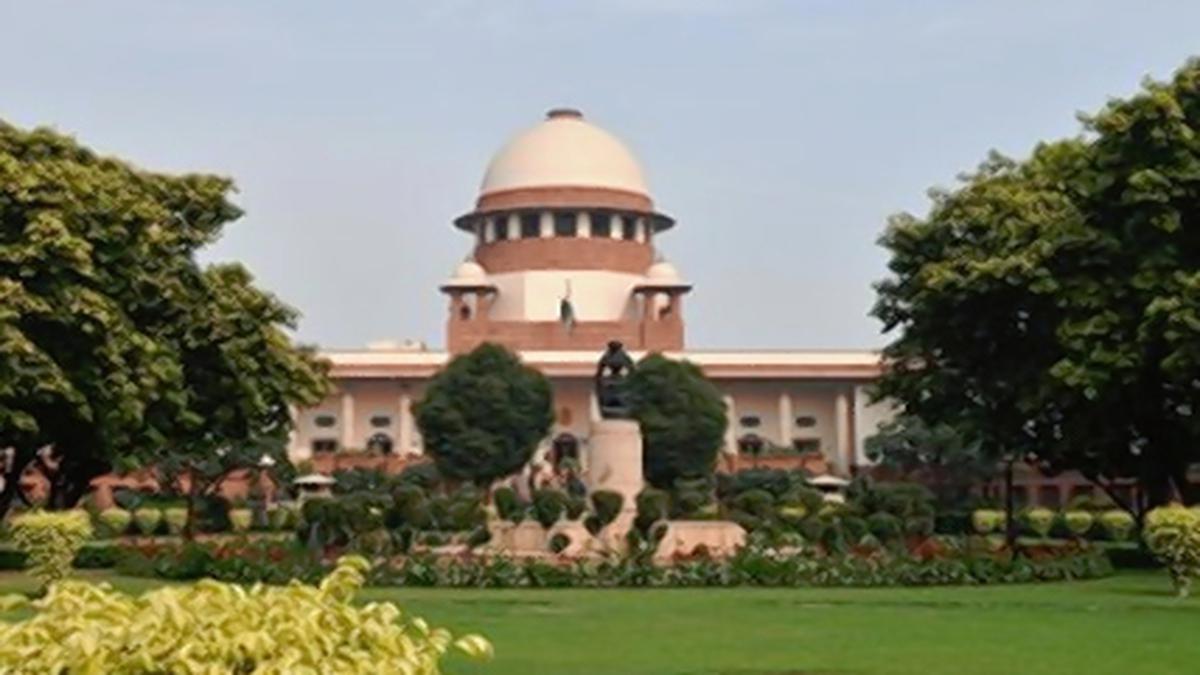Supreme Court gave Pollution Control Boards more teeth by declaring their power to impose and collect restitutionary damages to completely restore polluted air and waterbodies back to their original, pristine selves in an ecosystem.
| Photo Credit: Sushil Kumar Verma
The Supreme Court on Monday (August 4, 2025) gave Pollution Control Boards more teeth by declaring their power to impose and collect restitutionary damages to completely restore polluted air and waterbodies back to their original, pristine selves in an ecosystem.
“We direct that Pollution Control Boards can impose and collect as restitutionary and compensatory damages fixed sums of monies or require furnishing bank guarantees as an ex-ante measure towards potential environmental damage in exercise of powers under Sections 33A and 31A of the Water and Air Acts,” Justice P.S. Narasimha, who authored the judgment, held.

The judgment came on an appeal filed by the Delhi Pollution Control Committee against a Delhi High Court decision that it was not empowered to levy compensatory damages in exercise of powers under Section 33A of the Water (Prevention and Control of Pollution) Act, 1974 and Section 31A of the Air (Prevention and Control of Pollution) Act, 1981.
The Bench, also comprising Justice Manoj Misra, further directed that the power to impose or collect restitutionary or compensatory damages or the requirement to furnish bank guarantees as an ex-ante measure under the Water and Air Acts should be enforced only after issuing the necessary subordinate legislation in the form of rules and regulations under both statutes. The rules must incorporate the basic principles of natural justice.
“According to the polluter pays principle, the responsibility for repairing the damage is that of the offending industry… The focus has to be on restoration of the ecosystem as close and similar as possible to the specific one that was damaged,” Justice Narasimha observed.
The judgment said the payment of restitutory damages was distinct from charging punitive damages.
“Bringing the culprits to face the proceedings is a different matter and restoration of the damage already done is a different matter,” the court distinguished.
Enormous responsibilities
Justice Narasimha held that the Pollution Control Boards had expansive powers and “enormous responsibilities” under the Water Act and the Air Act. They had a broad statutory mandate to prevent, control and abate water and air pollution.
The provisions under these statutes bestowed the Boards with the power to direct closure, prohibition or regulation of any industry, operation or process. Further, this power extended to directing the stoppage or regulation of supply of electricity, water or any other service. The laws allow the Boards significant flexibility in deciding the nature of directions.
“Our constitutionalism bears the hallmark of an expansive interpretation of fundamental rights. But such creative expansion is only a job half done if the depth of the remedies, consequent upon infringement, remain shallow. In other words, remedial jurisprudence must keep pace with expanding rights and regulatory challenges. It is not sufficient that courts adopt injunctory, mandatory and compensatory remedies… Remedial powers or restitutionary directives are a necessary concomitant of both the fundamental rights of citizens who suffer environmental wrongs and an equal concomitant of the duties of a statutory regulator,” Justice Narasimha wrote.
Published – August 04, 2025 09:47 pm IST

